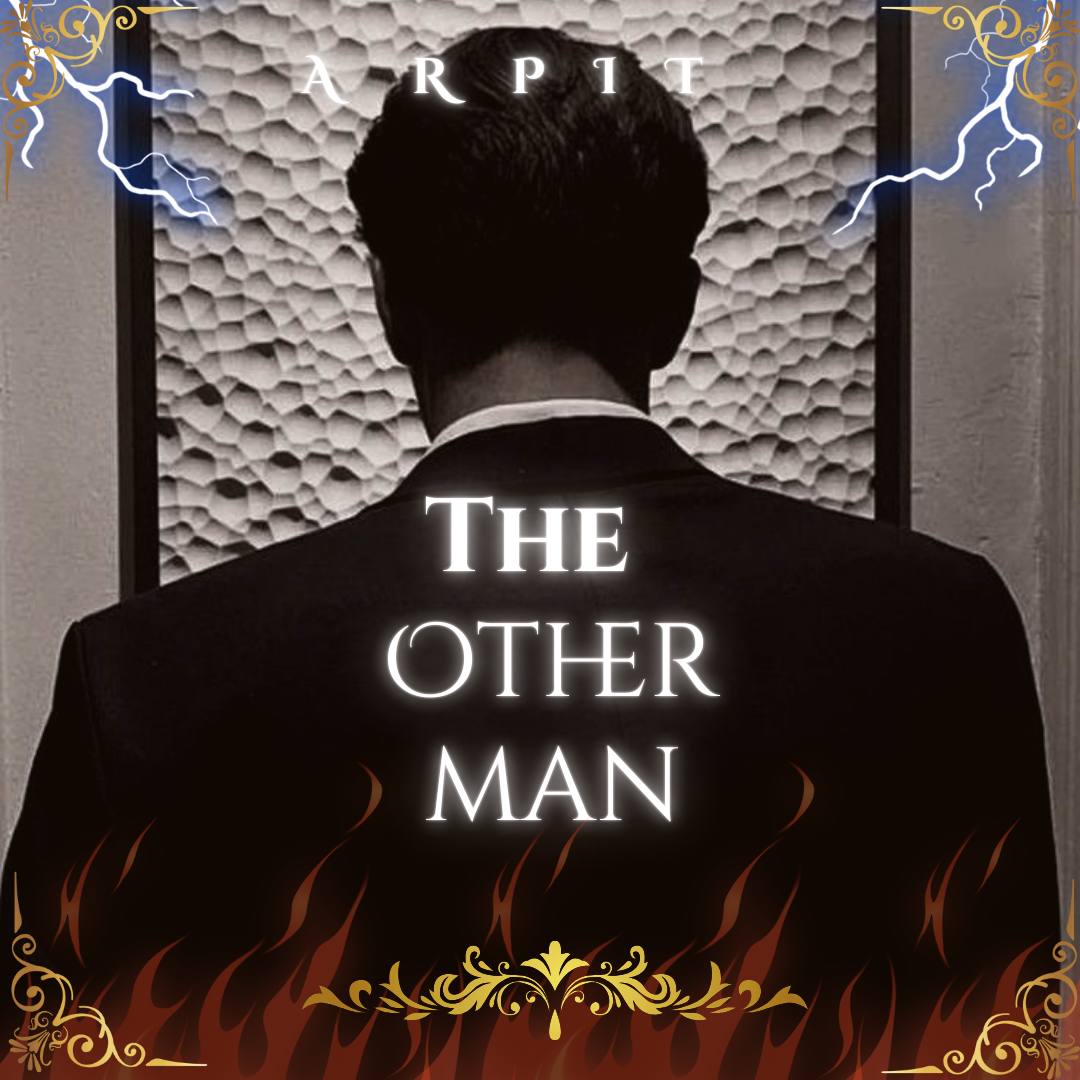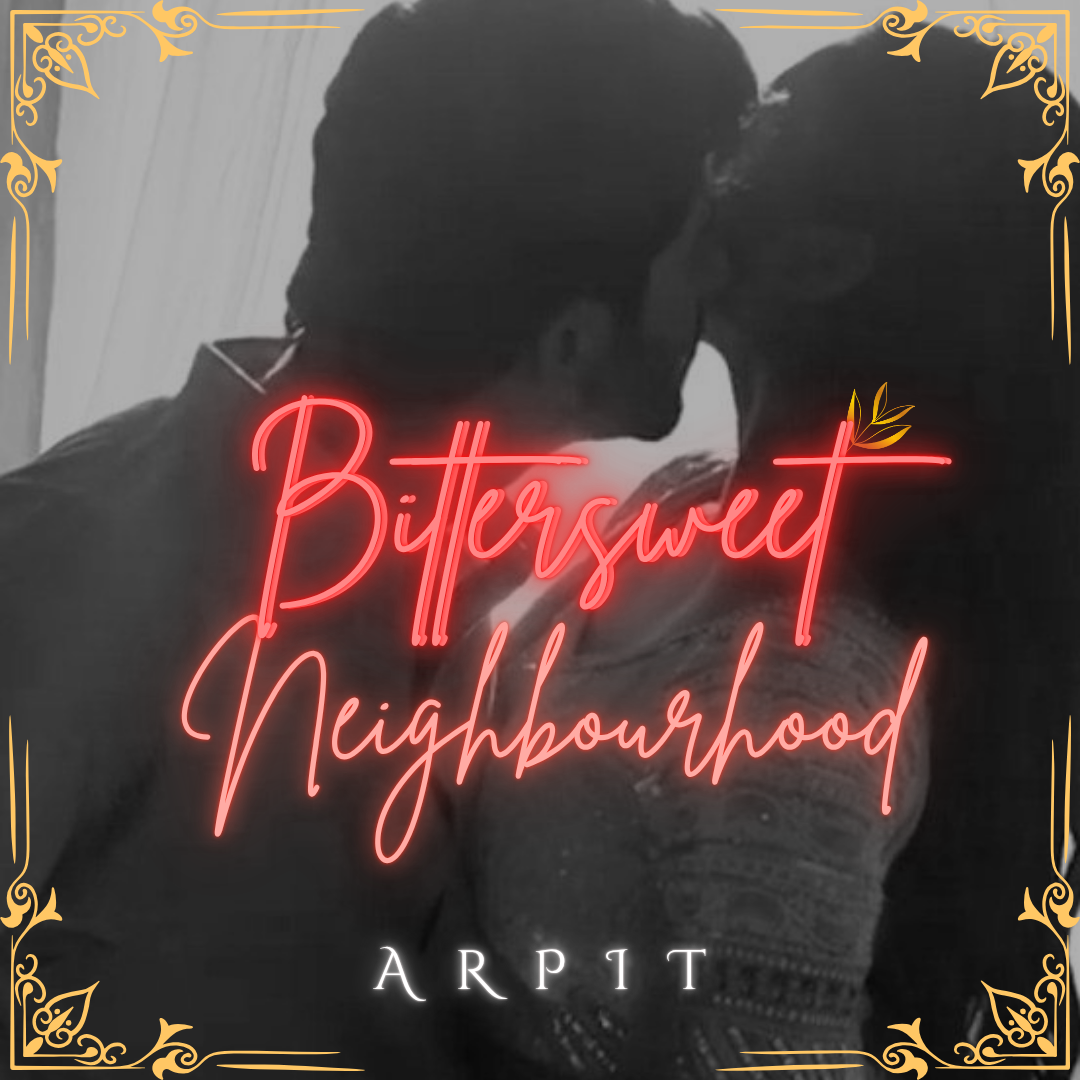
Devanshi’s mind wandered restlessly, replaying her recent encounter with the stranger boy. The memory clung to her thoughts like the fading scent of rain on parched earth.
Elsewhere, Rudraksh sat silently in his weathered Jeep, parked by the roadside. He waited for his friend Mohan, who was inside a nearby building attending a job interview.
As Rudraksh absentmindedly watched the world pass by, his gaze landed on a woman with a frail child in her arms. She stood at the edge of the footpath, her eyes hollow, voice trembling as she pleaded for help. Passersby rushed past her, their eyes fixed forward, unmoved by her desperation—as if she were invisible.
Rudraksh’s chest tightened. Without hesitation, he stepped out of the vehicle, his feet carrying him towards her, slowly but steadily.
“Babuji, kuch dijiye... mera baccha do din se bhooka hai,”
the woman implored, her voice cracking beneath the weight of despair.
(Sir, please give something... my child hasn’t eaten in two days.)
Rudraksh reached into his pocket for his wallet—but to his dismay, it was gone. He searched frantically, patting down his jeans and jacket.
“The purse must have been stolen,”
he thought, a flicker of frustration passing through him.
Then, almost miraculously, he found a few crumpled notes in one of his side pockets—enough to offer some relief. He handed them to the woman, whose eyes welled with gratitude.
“Mahadev aapki raksha kare!” she blessed him, bowing slightly.
(May Lord Mahadev protect you!)
As she walked away, cradling her child, Rudraksh let out a faint chuckle, speaking more to himself than anyone else.
“Mahadev is always with me. How strange, though—she asked for His protection for me, when she needed it far more.”
The moment lingered in his thoughts for a while. Then, remembering that Mohan’s interview must have ended, he turned back toward the building, his steps quickening to meet his friend.
When Mohan returned, his face clouded with disappointment, Rudraksha turned to look at him, concern softening her gaze.
“I couldn’t crack the interview,” Mohan murmured, the weight of his words settling heavily between them.
Rudraksha felt that weight, as if it had passed from his shoulders to hers.
“It’s alright,” she said gently. “Shayad Mahadev ki yahi ichha thi.”
“But I needed that job,” he said, his voice strained. “I gave it everything I had.”
he placed a hand lightly on his arm. “Maybe something greater than you can imagine is waiting for you. Trust Him. His ways aren’t always clear, but they’re always meant for our good.”
Mohan nodded slowly, the burden still present, but a glimmer of peace beginning to break through.
Together, the two friends walked back home in silence, the dusk wrapping around them like a quiet promise.
The air in Rishikesh was heavier than Devanshi remembered. It carried the scent of cement dust, scorched earth, and something more elusive—human exhaustion. The Himalayan foothills loomed in the background, majestic and unbothered, while men and children alike toiled at the base of what would soon become the gleaming Rathore Resort.
She stepped out of the white SUV in silence, her heels crunching the gravel beneath her. Mr. Kakkar, greeted her with his usual manufactured enthusiasm.
"Ah, Ms.Rathore! Just in time. Let me show you the blueprint," he said, waving a roll of paper that had already begun to fray at the edges.
But Devanshi wasn't listening. Her gaze had fallen to a boy—no older than nine—lugging a stack of bricks nearly half his size. His shirt was torn, and dust clung to his face like a second skin. Nearby, a girl, perhaps his sister, stirred cement in a dented tin barrel.
"Are those children working here?" Devanshi asked, her voice quiet but firm.
Mr. Kakkar followed her eyes, then gave a dismissive shrug. “Yes, yes. These people... they bring their whole families. It’s how things work here. You try to stop one, ten more come. This is just how they are.”
Devanshi’s jaw tightened.
“That doesn’t make it right,” she said.
He chuckled. “You have a kind heart, Ms.Rathore. But this is business. These people are used to it. You give them money, they waste it. You give them schooling, they drop out. Trust me, I’ve seen it for years.”
She didn’t respond. What was the point? There was a kind of arrogance in the way he spoke—as though empathy was a weakness and indifference, a badge of wisdom.
They continued the site tour. Kakkar spoke of spa wings, infinity pools, and VIP helipads. Devanshi only half-listened. Her eyes kept drifting—toward the little hands lifting too-heavy loads, toward the mothers with sunburned cheeks, and toward the children whose laughter had been replaced by silence.
Later, in the car on the way back to her hotel, she stared out at the fading hills and the winding Ganga, her thoughts louder than the radio playing in the background.
She was the CEO now. Rathore Enterprises bore her name. If she couldn’t change everything, she could at least change something.
She opened her phone and typed a note:
Launch initiative. Local outreach. Education, food, health. Start with the Rishikesh site. Small steps. Real change.
Children first.
She didn’t need Kakkar’s approval.
She had her own kind of power. And she was going to use it.
Devanshi’s footsteps echoed softly through the polished wooden floors of the Rathore Retreat — one of the company’s oldest resorts in the hills, and one that still felt like home. She entered her suite, dropped her bag on the couch, and sat by the window, watching the darkness settle over the mountains. The moonlight dusted the treetops like silver frost.
Her father was waiting for her in the lounge downstairs. She found him exactly as she expected—seated in his usual armchair, nursing a glass of honeyed whiskey, a shawl draped over his broad shoulders like a king at rest.
“Princess,” he greeted, raising his eyes from the fire. “Back already? How was the site?”
She hesitated. “It’s beautiful. The location, I mean.”
He nodded. “Good. We need something extraordinary there. It’s time the north had a flagship resort.”
“But...” she began, choosing her words carefully, “I saw children working. Not one or two. Dozens. Carrying bricks. Mixing cement.”
Devraj Rathore was silent.
“And Mr. Kakkar,” she went on, “he just brushed it off. He said that’s how things are.”
Her father studied her face, then set his glass down.
“And what did you say?”
“I didn’t argue with him. But I want to change it. I don’t want our resort built on the backs of children. I want those kids in school. Fed. Safe.” Her voice cracked, just a little. “We can afford that.”
For a long moment, Devraj said nothing. His weathered face was unreadable. Then, slowly, he nodded.
“You know,” he said quietly, “when I started this company, I made a lot of choices I wasn’t proud of. I told myself I had no other option. But you... you don’t just carry the Rathore name, you carry its future. If this is how you want to run the business, I’ll support it.”
Devanshi’s heart lifted. “You mean it?”
“I do,” he said. “Tomorrow, I’ll call Kakkar. You take care of the rest.”
By sunrise, the change had begun.
The next day, when Devanshi returned to the site, the silence felt different — no longer one of resignation, but of curiosity. The children were gone.
In their place stood a white van with the Rathore logo painted on the side. Inside, clean uniforms and school supplies. A temporary learning center had been set up under a wide tin shade, with teachers hired from the local village and volunteers from NGOs brought in overnight.
Devanshi watched as the same boy from before — the one with the dust-covered face — now clutched a notebook, awkwardly gripping a pencil. His eyes met hers, wide and unsure.
She smiled.
The adults still worked, yes. But now with better wages, protective gloves, and drinking water stations. Small things. First steps. But to Devanshi, they felt like the foundation of something far more lasting than a resort.
As she stood overlooking the valley, the breeze tugged gently at her scarf. For the first time, she felt the name she carried — Rathore — wasn’t just an empire.
It was a promise.
The roar of Rudraksh’s old Enfield echoed through the narrow forest trail as the sun dipped behind the trees, casting long shadows over the gravel path. Dust trailed behind him like smoke from a dragon’s breath, but Rudraksh rode with ease — this road had been his since childhood.
He wasn't in a hurry. He rarely was. The mountains taught patience, and Rudraksh had learned well.
Wearing a faded black kurta, his long hair tied loosely, he looked more like a wandering poet than a village priest’s grandson. A cloth bag hung from his shoulder — filled with worn books, tools from the repair shop, and one torn packet of incense he always carried for his Dadaji.
As he neared the bend that led to the fields, a voice called out.
“Rudraksh beta!”
He slowed and turned to see Ramlal, a weathered man in his fifties with a white turban and a smile as cracked as the earth in summer.
“Ramlal kaka,” Rudraksh greeted, hopping off the bike and pushing it beside him. “Sab theek?”
Ramlal looked hesitant. “I was looking for you. I wanted to ask... my daughter’s marriage is next two days. I was hoping—if you would do the rituals. Be the pandit.”
Rudraksh’s smile faded a little. “Kaka... you should talk to Dadaji. He still performs pujas. I—I’m not ready for all that.”
“But he’s getting old, beta,” Ramlal said gently. “And people already look up to you. You have your Dadaji’s knowledge. His heart.”
Rudraksh looked down, his fingers tightening slightly around the handlebars.
“It’s not about knowledge,” he said softly. “It’s about calling. My path... I don’t know what it is yet.”
Ramlal studied him for a moment, then gave a slow nod. “Alright. I’ll come meet your Dadaji this evening. We’ll talk then.”
Rudraksh nodded. “He’ll be happy to see you.”
As Ramlal walked away, Rudraksh stood still for a moment. The breeze rustled the tall grass, and a hawk cried in the distance.
He started the bike again, its engine breaking the silence, and rode on.
Toward home.
Toward a heritage he hadn’t yet decided if he’d embrace — or escape.
The Bhatt household sat quietly at the edge of the village — a simple stone home surrounded by flowering hibiscus and an old peepal tree that had seen generations come and go. The scent of sandalwood hung in the air, lingering from the morning’s puja.
Inside, Viraj Bhatt sat cross-legged near the sacred corner, polishing the brass kalash with hands that trembled just slightly now. His white beard flowed like a river of time, and though his spine had begun to stoop, there was still fire in his eyes.
The sun was dipping low when Ramlal arrived, wiping his forehead as he stepped into the courtyard.
“Viraj ji,” he said with folded hands, “I’m sorry to disturb you at this hour.”
Viraj looked up with a warm smile. “No need for that, Ramlal. You are family to us. Come, sit.”
Ramlal hesitated, then sat on the stone bench near the tulsi pot. “It’s about my daughter’s wedding. I spoke to Rudraksh, but he... he asked me to come to you.”
Viraj nodded knowingly. “He still walks in the forest of questions. Let him. The river finds its way eventually.”
“I wanted to ask you,” Ramlal said with a deep breath. “Will you do the rituals?”
Before Viraj could respond, a voice came from inside.
“Baba, no.”
Vedas Bhatt, Rudraksh’s father, stepped into the courtyard, wiping his hands on a towel. His brow was creased, his eyes firm.
“Your back pain hasn’t eased in weeks. The doctor told you to rest. Why take on this burden again?” he said, his tone protective.
Ramlal stood, hands clasped. “I understand, Vedas bhaiya. But this marriage is... special. My only daughter. People in the village trust only Viraj ji for these rites. They believe his words make the bond stronger.”
Vedas looked at his father, frustration and concern mingling in his face. “You don’t have to prove anything, Baba. we can call someone from Rishikesh.”
But Viraj lifted a hand, silencing them both with the calm strength of a man who had held fire in his palms more times than they could count.
“If the people still come to my door, I will not close it on them,” he said. “I will do it, Ramlal.”
“But Baba—” Vedas began again.
“I said I will do it,” Viraj repeated, softer now, but resolute.
Ramlal’s eyes filled with gratitude. “Thank you, Viraj ji. You are a blessing to this village.”
As Ramlal took his leave, Vedas watched his father settle slowly back onto the mat, pressing a hand to his side.
From behind the curtain, Rudraksh had been watching silently. A part of him felt proud. Another part felt... afraid.
Afraid that the weight of these sacred fires would one day fall into his hands—ready or not.
Sneak peek- Chapter 5
He raised a hand dismissively. "Madam, these poor people—look, they’re always getting scrapes, falling here and there. She’ll be fine with some water and rest. You don’t need to take her to a hospital for this."
Devanshi’s jaw tightened, but she remained composed.
"You think this is a scrape?" she said, pointing to the blood running down the woman’s temple. "She could have a concussion, internal bleeding—we don’t know. And I’m not going to gamble with someone’s life just because it’s inconvenient for you."
Kakkar hesitated, caught off-guard by the steel in her voice










Write a comment ...